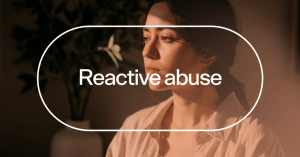Tracy has felt like just an extension of another human being, at a loss of her own personal identity, and a doormat to her husband Bill of 23 years. She describes her marriage as “all giving and not much getting”.
She is frustrated, drained, alone, and so aware of his constant wants that she no longer knows what she wants out of life. She admits to feeling sorry for herself often and has sought help but has never really followed through with anything.
She admits that her fear of his anger or rejection dictates much of her decisions and accepts the relationship for what it is because she is “already too invested”. The real investment here is her codependency with her husband.
Have you found yourself in a similar situation as Tracey? Do you find yourself constantly giving and giving, trying to please your partner, and/or trying to resolve your partner’s problems?
Although it is normal for there to be moments in the partnership where you don’t feel a reciprocal amount of effort, it begins to get unhealthy when it is more the norm than not. It gets  harmful and destructive when you find yourself in the codependency dance in your relationship.
harmful and destructive when you find yourself in the codependency dance in your relationship.
Codependency is often associated with that of partners of alcoholics. However, today we can see this same dysfunctional dynamic in any type of relationship.
Codependents get their label by finding their self-worth and value in their ability to give to others. We see this in the alcoholic and codependent relationship because while the codependent is giving, pleasing, and fixing the alcoholic is taking, draining, breaking, and taking some more.
Here Are 5 Signs You Might Be In A Codependent Relationship:
#1 You put the relationship above yourself.
You might find yourself trying to save the relationship at all cost and neglecting your personal needs and wishes to put the needs of your partners’ first.
You might also have heard comments from friends or family members voicing their concerns that you are too invested in someone that would never put in half the amount of work you are putting into it.
#2 You have poor boundaries.
You might find yourself having a hard time saying no to your partner (or even to other people for that matter). The times that you have said no, you have been made out to be the “bad guy”. Therefore you surrender to this role by saying “yes”, and giving-in to keep this relationship afloat.
#3 You are overly controlling.
You might find yourself super controlling in situations that can cause you to feel anxious or out of control. Since you are on this emotional roller coaster, with unpredictable ups and downs, you find validation and self-approval in having power and authority in certain aspects of your life whether it be at work or even just things around the house.
#4 You feel responsible for your partner’s feelings.
You might find yourself taking responsibility for your partner’s behavior and being hard on yourself for not doing more to control the situation. You might even find yourself making excuses for the things they are doing wrong or not doing at all and putting all the blame on yourself.

#5 It is affecting your other relationships.
You might find that your codependency with your partner has spilled into your other relationships and it is affecting their ability to be close and honest with you. It might be difficult to maintain an honest relationship with friends and family if you are constantly hiding or making excuses for the same reoccurring issues or complaints. They might also find it difficult to see you repeat the same pattern over and over again and might distant themselves from you.
Codependency can be a difficult thing to change because often times we are blinded to it in our lives. As we can see with Tracey, she is truly missing out on the wonderful things that life has to offer due to her desire to please her husband, neglect her own desires, and living life on someone else’s terms other than hers.
The self-blaming and partner-pleasing can often be so self consuming that we can go years living and maintaining this dysfunctional relationship without even knowing it. Identifying the signs, coming to terms that you can’t change alone, and making the conscious decision to break the pattern is the first step towards recovery.
If you are struggling with codependency and want to take the first step towards chang then call Life Counseling Solutions today at 407-622-1770. Our expert therapists are here to help you break free from this unhealthy pattern.
Author: Joann Venant







